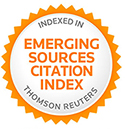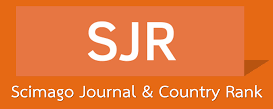Consideraciones profundas: vinculando normas personales con intenciones proambientales en el turismo centennial
Resumen
https://doi.org/10.53766/RGV/2025.66.1.02
Considerando la creciente inquietud vinculada al turismo con responsabilidad ambiental que se presentan en los centennials del país, el propósito de este estudio fue analizar el comportamiento proambiental de los turistas centennials ecuatorianos mediante la evaluación de un modelo teórico centrado en la teoría Valor-Creencias-Normas (VBN). La investigación cuantitativa con alcance exploratorio se fundamentó en los datos de una encuesta en la cual participaron 518 estudiantes universitarios ecuatorianos entre los 18 y 30 años. La encuesta está formada por 27 ítems medidos con una escala Likert de 7 puntos y analizado con la técnica PLS-SEM. Los resultados identificaron el efecto significativo sea del nuevo paradigma ecológico (NPE) como de las normas personales (NP) en la intención de adoptar un comportamiento proambiental (IC). Sin embargo, se destaca que la boca en boca (BB) ejercita un efecto moderador negativo entre NPE e IC mostrando como la adopción del comportamiento ambiental es vivida como un valor personal y no comunitario.
Palabras clave
Texto completo:
PDFReferencias
AHMAD, J.; AL MAMUN, A.; MASUKUJJAMAN, M.; MOHAMED MAKHBUL, Z. K. & K. A. MOHD AL. 2023. “Modeling the
workplace pro-environmental behavior through green human resource management and organizational culture: Evidence from an emerging economy”. Heliyon, 9(9): 19134. Disponible en:
https://doi.org/10.1016/J.HELIYON.2023.E19134.
AL MAMUN, A.; HAYAT, N.; MASUD, M. M.; YANG, Q.; SALAMEH, A. A. & F. M. SALLEH. 2022. “Energy Conservation Behaviour Among the Malaysian Youth: A Study Under the Premises of Value-Belief-Norm Model”. Frontiers in Energy Research, 10: 902619. Disponible en: https://doi.org/10.3389/FENRG.2022.902619/BIBTEX.
ALAM, M. N.; OGIEMWONYI, O.; ALSHAREEF, R.; ALSOLAMY, M.; MAT, N. & N. A. AZIZAN. 2023. “Do social media influence altruistic and egoistic motivation and green purchase intention towards green products? An experimental investigation”. Cleaner Engineering and Technology, 15: 100669. Disponible en: https://doi.org/10.1016/J.CLET.2023.100669.
ARAVINDAN, K. L.; RAMAYAH, T.; THAVANETHEN, M.; RAMAN, M.; ILHAVENIL, N.; ANNAMALAH, S. & Y. V. CHOONG. 2023.
“Modeling Positive Electronic Word of Mouth and Purchase Intention Using Theory of Consumption Value”. Sustainability 2023,15(4): 3009. Disponible en: https://doi.org/10.3390/SU15043009.
BARRADAS, J. I. & N. P. GHILARDI-LOPES. 2020. “A case study using the New Ecological Paradigm scale to evaluate coastal and marine environmental perception in the Greater São Paulo (Brazil)”. Ocean & Coastal Management, 191: 105177. Disponible en: https://doi.org/10.1016/J.OCECOAMAN.2020.105177.
BASTOS, W. & S. G. MOORE. 2021. “Making word-of-mouth impactful: Why consumers react more to WOM about experiential than material purchases”. Journal of Business Research, 130: 110-123. Disponible en: https://doi.org/10.1016/J.JBUSRES.2021.03.022.
CHEN, T. & WU, Z. 2022. “Employing a sort of we based VBN model to gauge Chinese tourists’ intentions to support low-carbon tourism”. Acta Psychologica, 230: 103761. Disponible en: https://doi.org/10.1016/J.ACTPSY.2022.103761.
DERDOWSKI, L. A.; GRAHN, Å. H.; HANSEN, H. & H. SKEISEID. 2020. “The New Ecological Paradigm, Pro-Environmental Behaviour, and the Moderating Effects of Locus of Control and Self-Construal”. Sustainability 2020, 12(18): 7728. Disponible en: https://doi.org/10.3390/SU12187728.
DEY, M.; BHATTACHARJEE, S.; MAHMOOD, M.; UDDIN, M. A. & S. R. BISWAS. 2022. “Ethical leadership for better sustainable performance: Role of employee values, behavior and ethical climate”. Journal of Cleaner Production, 337: 130527. Disponible en: https://doi.org/10.1016/J.JCLEPRO.2022.130527.
DYR, W. & M. PRUSIK. 2020. “Measurement of Proecological Attitudes Within New Ecological Paradigm in Polish Current Settings”. Social Psychological Bulletin, 15(3): 1-26. Disponible en:
https://doi.org/10.32872/SPB.3697.
FENITRA, R. M.; PREMANANTO, G. C.; SEDERA, R. M. H.; ABBAS, A. & N. LAILA. 2022. “Environmentally responsible behavior and Knowledge-Belief-Norm in the tourism context: The moderating role of types of destinations”. International Journal of Geoheritage and Parks, 10(2): 273-288. Disponible en: https://doi.org/10.1016/J.IJGEOP.2022.05.001.
FOROUGHI, B.; ARJUNA, N.; IRANMANESH, M.; KUMAR, K. M.; TSENG, M. L. & N. LEUNG. 2022. “Determinants of hotel guests’ pro-environmental behaviour: Past behaviour as moderator”. International Journal of Hospitality Management, 102: 103167. Disponible en: https://doi.org/10.1016/J.IJHM.2022.103167.
GROOT, J. I. M.; BONDY, K. & G. SCHUITEMA. 2021. “Listen to others or yourself? The role of personal norms on the effectiveness of social norm interventions to change pro-environmental behavior”. Journal of Environmental Psychology, 78: 101688. Disponible en: https://doi.org/10.1016/J.JENVP.2021.101688.
HAFFAR, G.; DURIF, F. & L. DUBÉ. 2020. “Towards closing the attitude-intention-behavior gap in green consumption: A narrative review of the literature and an overview of future research directions”. Journal of Cleaner Production, 275: 122556. Disponible en: https://doi.org/10.1016/J.JCLEPRO.2020.122556.
HAIR, J. F.; HULT, T. G.; RINGLE, C. M. & M. SARSTEDT. 2021. A Primer on Partial Least Squares Structural Equation Modeling (PLS-SEM). SAGE Publication, Inc. Disponible en: https://www.routledge.com/Composite-Based-Structural-Equation-Modeling-Analyzing-Latent-and Emergent/Henseler/p/book/9781462545605.
HAIR, J. F.; RISHER, J. J.; SARSTEDT, M. & C. M. RINGLE. 2019. “When to use and how to report the results of PLS-SEM”. European Business Review, 31(1): 2-24. Disponible en: https://doi.org/10.1108/EBR-11-2018-0203.
HAN, H. 2015. “Travelers’ pro-environmental behavior in a green lodging context: Converging value-belief-norm theory and the theory of planned behavior”. Tourism Management, 47: 164-177. Disponible en: https://doi.org/10.1016/j.tourman.2014.09.014
HAN, H.; HWANG, J. & M. J. LEE. 2017. “The value–belief–emotion–norm model: investigating customers’ eco-friendly behavior”. Journal of Travel and Tourism Marketing, 34(5): 590-607. Disponible en: https://doi.org/10.1080/10548408.2016.1208790.
KAARONEN, R. O. & N. STRELKOVSKII. 2020. “Cultural Evolution of Sustainable Behaviors: Pro-environmental Tipping Points in an Agent-Based Model”. One Earth, 2(1): 85–97. Disponible en: https://doi.org/10.1016/J.ONEEAR.2020.01.003.
LAVURI, R.; CHIAPPETTA, C. J.; GREBINEVYCH, O. & D. ROUBAUD. 2022. “Green factors stimulating the purchase intention of innovative luxury organic beauty products: Implications for sustainable development”. Journal of Environmental Management, 301: 113899. Disponible en: https://doi.org/10.1016/J.JENVMAN.2021.113899.
LEE, S. H. N.; CHANG, H. J. & L. ZHAO. 2023. “The importance of personal norms and situational expectancies to sustainable behaviors: The norm activation and situational expectancy-value theories”. Journal of Retailing and Consumer Services, 73: 103371. Disponible en: https://doi.org/10.1016/J.JRETCONSER.2023.103371.
LIU, H.; JAYAWARDHENA, C.; OSBURG, V. S.; YOGANATHAN, V. & S. CARTWRIGHT. 2021. “Social sharing of consumption emotion in electronic word of mouth (eWOM): A cross-media perspective”. Journal of Business Research, 132: 208-220. Disponible en: https://doi.org/10.1016/J.JBUSRES.2021.04.030.
LOO, W. H.; YEOW, P. H. P. & Y. Y. YEN. 2023. “Antecedents of the responsible acquisition of computers behaviour: Integrating the theory of planned behaviour with the value-belief-norm theory and the habits variable”. PLOS ONE, 18(6): e0286022. Disponible en: https://doi.org/10.1371/JOURNAL.PONE.0286022.
MEHDIKHANI, R. & C. VALMOHAMMADI. 2022. “The effects of green brand equity on green word of mouth: the mediating roles of three green factors”. Journal of Business and Industrial Marketing, 37(2): 294-308. Disponible en: https://doi.org/10.1108/JBIM-03-2020-0166/FULL/XML.
NETO, J. F. DOS R.; SOUZA, C. C. DE, BITENCOURT, T. D. A.; CUPERTINO, C. M.; NETO, P. L. DE M., SOARES, D. G. & I. de O. RODRIGUES. 2021. “Validating the Scale of the New Ecological Paradigm (NEP) in Brazilian University Students”. Research, Society and Development, 10(4): e16410413947–e16410413947. Disponible en: https://doi.org/10.33448/RSD-V10I4.13947.
NIEMIEC, R. M.; CHAMPINE, V.; VASKE, J. J. & A. MERTENS. 2020. “Does the Impact of Norms Vary by Type of Norm and Type of Conservation Behavior? A Meta-Analysis”. Society & Natural Resources, 33(8): 1.024-1.040. Disponible en: https://doi.org/10.1080/08941920.2020.1729912.
PEARCE, J.; HUANG, S.; DOWLING, R. K. & A. J. SMITH. 2022. “Effects of social and personal norms, and connectedness to nature, on pro-environmental behavior: A study of Western Australian protected area visitors”. Tourism Management Perspectives, 42: 100966. Disponible en: https://doi.org/10.1016/J.TMP.2022.100966.
RIA, W.; DOSEN, P.; BIASA, L.; TADRIS, J.; SOSIAL, I. P.; TARBIYAH, F. & I. KEGURUAN. 2020. “New enviromental paradigma (nep) dalam mengukur kesiapan berperilaku ramah lingkungan pada sekolah adiwiyata di ponorogo”. ASANKA: Journal of Social Science and Education, 1(1): 16-21. Disponible en: https://doi.org/10.21154/ASANKA.V1I1.1941.
SHANMUGAVEL, N.; RAJENDRAN, R. & M. MICHEAL. 2022. “An exploration on the influence of altruistic factors on voluntary vehicle scrapping to promote sustainable environment”. Cleaner Materials, 4: 100081. Disponible en: https://doi.org/10.1016/J.CLEMA.2022.100081.
SHANMUGAVEL, N. & S. SOLAYAN. 2021. “Impact of hedonic motivation and perceived moral obligation on green products purchase intention among centennials”. Academy of Marketing Studies Journal, 25(3): 1–20. Disponible en: https://www.abacademies.org/articles/.
SIMANJUNTAK, M.; NAFILA, N. L.; YULIATI, L. N.; JOHAN, I. R.; NAJIB, M. & M. F. SABRI. 2023. “Environmental Care Attitudes and Intention to Purchase Green Products: Impact of Environmental Knowledge, Word of Mouth, and Green Marketing”. Sustainability 2023, 15(6): 5445. Disponible en: https://doi.org/10.3390/SU15065445.
SINGH, A.; RANA, N. P. & S. PARAYITAM. 2022. “Role of social currency in customer experience and co-creation intention in online travel agencies: Moderation of attitude and subjective norms”. International Journal of Information Management Data Insights, 2(2): 100114. Disponible en: https://doi.org/10.1016/J.JJIMEI.2022.100114.
SOREN, A. A. & S. CHAKRABORTY. 2023. “The formation of habit and word-of-mouth intention of over-the-top platforms”. Journal of Retailing and Consumer Services, 75: 103460. Disponible en: https://doi.org/10.1016/J.JRETCONSER.2023.103460.
SYROPOULOS, S. & E. M. MARKOWITZ. 2022. “Perceived responsibility to address climate change consistently relates to increased pro-environmental attitudes, behaviors and policy support: Evidence across 23 countries”. Journal of Environmental Psychology, 83: 101868. Disponible en: https://doi.org/10.1016/J.JENVP.2022.101868.
SYROPOULOS, S. & E. M. MARKOWITZ. 2021. “Perceived responsibility towards future generations and environmental concern: Convergent evidence across multiple outcomes in a large, nationally representative sample”. Journal of Environmental Psychology, 76: 101651. Disponible en: https://doi.org/10.1016/J.JENVP.2021.101651.
TONDER, E.; FULLERTON, S.; DE BEER, L. T. & S. G. SAUNDERS. 2023. “Social and personal factors influencing green customer citizenship behaviours: The role of subjective norm, internal values and attitudes”. Journal of Retailing and Consumer Services, 71: 103190. Disponible en: https://doi.org/10.1016/J.JRETCONSER.2022.103190.
ÜNAL, A. B.; STEG, L. & M. GORSIRA. 2018. “Values Versus Environmental Knowledge as Triggers of a Process of Activation of Personal Norms for Eco-Driving”. Environment and Behavior, 50(10): 1.092-1.118. Disponible en: https://doi.org/10.1177/0013916517728991/ASSET/IMAGES/LARGE/10.1177_0013916517728991-FIG1.JPEG.
VERMA, V. K.; CHANDRA, B. & S. KUMAR. 2019. “Values and ascribed responsibility to predict consumers’ attitude and concern towards green hotel visit intention”. Journal of Business Research, 96: 206-216. Disponible en: https://doi.org/10.1016/J.JBUSRES.2018.11.021.
WANG, Z.; NIE, L.; JERONEN, E.; XU, L. & M. CHEN. 2023. “Understanding the Environmentally Sustainable Behavior of Chinese University Students as Tourists: An Integrative Framework”. International Journal of Environmental Research and Public Health 2023, 20(4): 3317. Disponible en: https://doi.org/10.3390/IJERPH20043317.
WANG, S.; JI, C.; HE, H.; ZHANG, Z. & L. ZHANG. 2021. “Tourists’ waste reduction behavioral intentions at tourist destinations: An integrative research framework”. Sustainable Production and Consumption, 25: 540-550. Disponible en: https://doi.org/10.1016/J.SPC.2020.12.010.
WANG, X.; VAN DER WERFF, E.; BOUMAN, T.; HARDER, M. K. & L. STEG. 2021a. “I Am vs. We Are: How Biospheric Values and Environmental Identity of Individuals and Groups Can Influence Pro-environmental Behaviour”. Frontiers in Psychology, 12: 618956. Disponible en: https://doi.org/10.3389/FPSYG.2021.618956/BIBTEX.
WIBOWO, N. A.; SUMARMI, S.; UTAYA, S.; BACHRI, S. & Y. KODAMA. 2023. “Students’ Environmental Care Attitude: A Study at Adiwiyata Public High School Based on the New Ecological Paradigm (NEP)”. Sustainability 2023, 15(11): 8651. Disponible en: https://doi.org/10.3390/SU15118651.
WITEK, L. & W. KUŹNIAR. 2020. “Green Purchase Behavior: The Effectiveness of Sociodemographic Variables for Explaining Green Purchases in Emerging Market”. Sustainability 2021, 13(1): 209. Disponible en: https://doi.org/10.3390/SU13010209.
XIAO, C. & BUHRMANN, J. 2019. “Ideas to action: environmental beliefs, behaviors, and support for environmental policies”. Journal of Environmental Studies and Sciences, 9(2): 196-205. Disponible en: https://doi.org/10.1007/S13412-019-00541-4/METRICS.
XU, X.; WANG, S. & Y. YU. 2020. “Consumer’s intention to purchase green furniture: Do health consciousness and environmental awareness matter?” Science of The Total Environment, 704: 135275. Disponible en: https://doi.org/10.1016/J.SCITOTENV.2019.135275.
YANG, Q.; AL MAMUN, A.; NAZNEN, F.; SIYU, L. & Z. K. MOHAMED. 2023. “Modelling the significance of health values, beliefs and norms on the intention to consume and the consumption of organic foods”. Heliyon, 9(6): e17487. Disponible en: https://doi.org/10.1016/j.heliyon.2023.e17487.
ZAWADZKI, S. J.; BOUMAN, T.; STEG, L.; BOJARSKICH, V. & P. B. DRUEN. 2020. “Translating climate beliefs into action in a changing political landscape”. Climatic Change, 161(1): 21-42. Disponible en: https://doi.org/10.1007/S10584-020-02739-W/TABLES/4.
ZHU, G.; CHEN, Y. & J. ZHENG. 2020. “Modelling the acceptance of fully autonomous vehicles: A media-based perception and adoption model”. Transportation Research Part F: Traffic Psychology and Behaviour, 73: 80-91. Disponible en: https://doi.org/10.1016/J.TRF.2020.06.004.
Enlaces refback
- No hay ningún enlace refback.
DOI: https://doi.org/10.53766/RGV
La Revista Geográfica Venezolana se encuentra actualmente indizada en:
 |  |  | |
 |  |  |  |
 |  |  |  |
![]()
Todos los documentos publicados en esta revista se distribuyen bajo una
Licencia Creative Commons Atribución -No Comercial- Compartir Igual 4.0 Internacional.
Por lo que el envío, procesamiento y publicación de artículos en la revista es totalmente gratuito.

